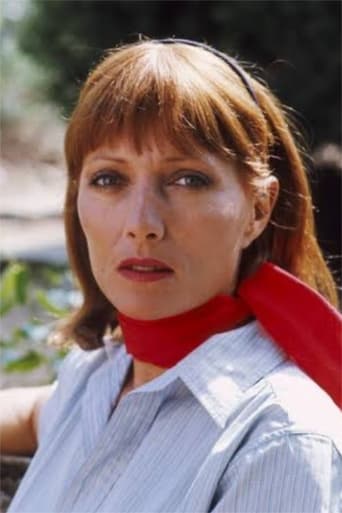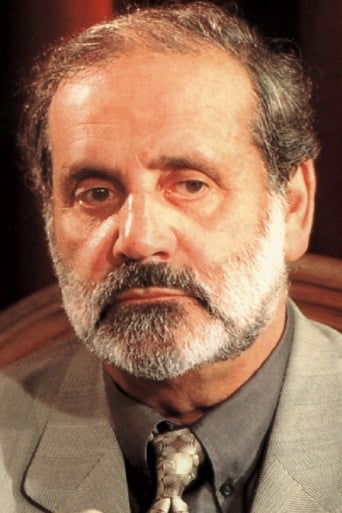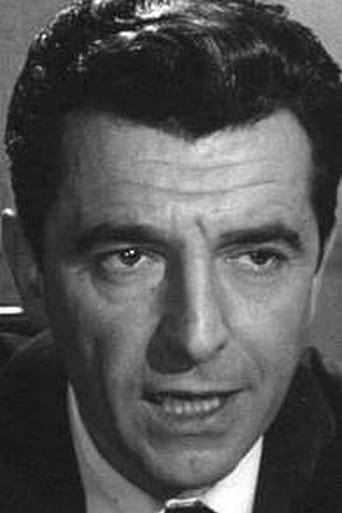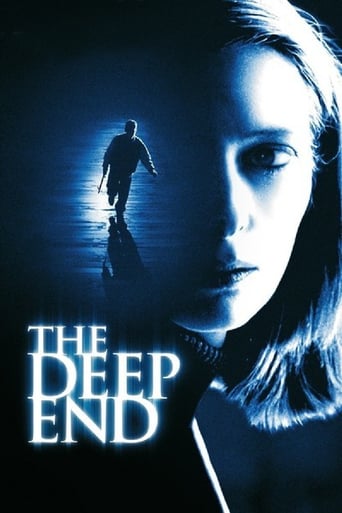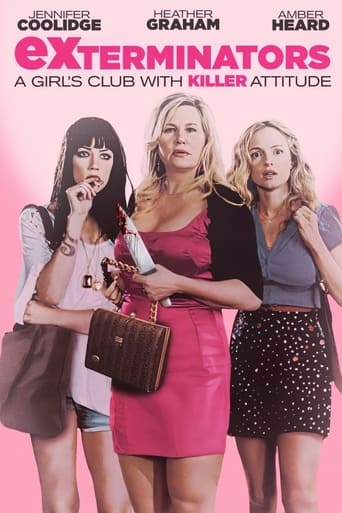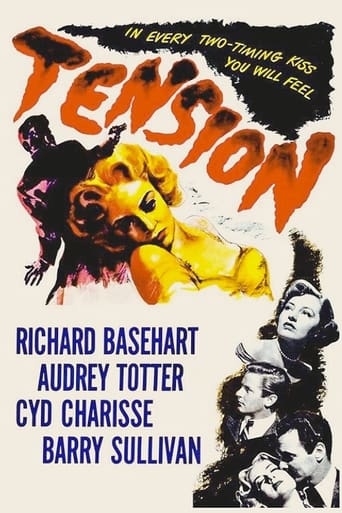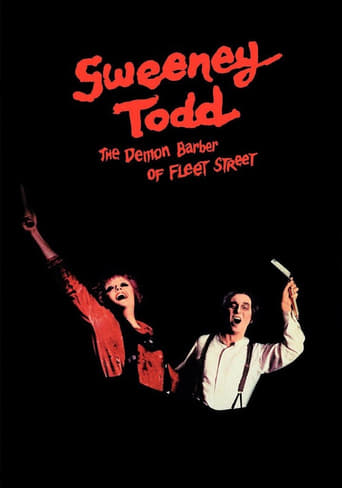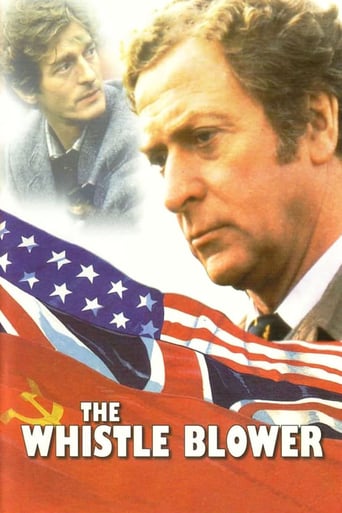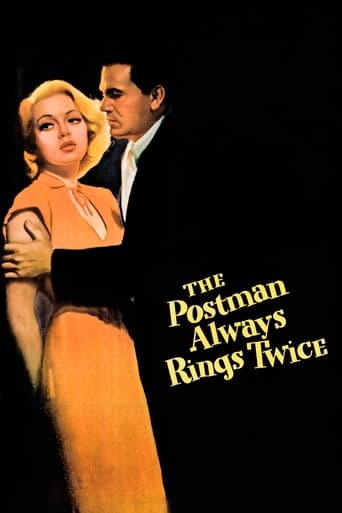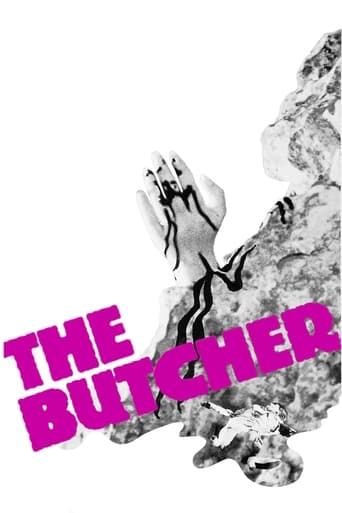
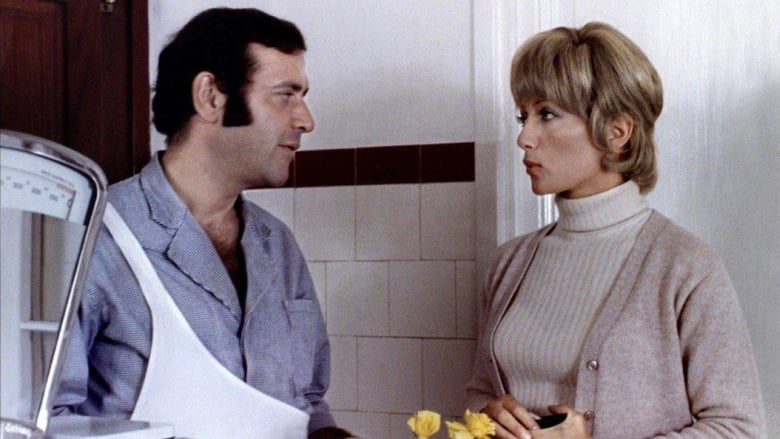
The Butcher (1970)
An unlikely friendship between a dour, working class butcher and a repressed schoolteacher coincides with a grisly series of Ripper-type murders in a provincial French town.
Watch Trailer
Cast
Similar titles
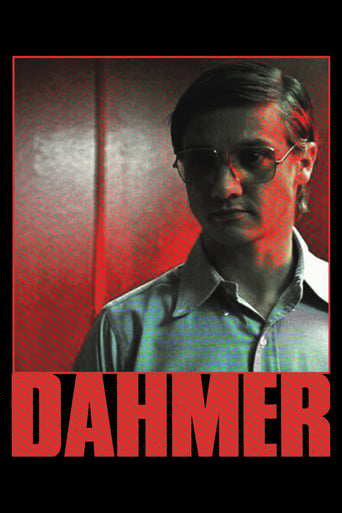
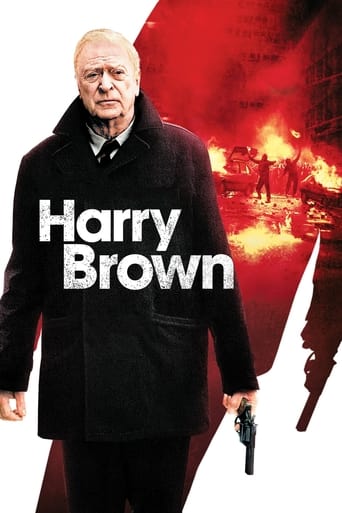

Reviews
To me, this movie is perfection.
hyped garbage
Good concept, poorly executed.
Clever and entertaining enough to recommend even to members of the 1%
After watching the stylish 1959 movie À double tour,I started talking to a fellow IMDber about the work of auteur film maker Claude Chabrol. Receiving a rec for another Chabrol title,I tracked down the DVD on Ebay,and get ready to have a butchers at Chabrol.The plot:Attending a wedding,school teacher Hélène meets Paul Thomas,who is a butcher in the small town.Still hurt by the pain from her past relationship, Hélène keeps things at a platonic level with Thomas,who drops his guard,and begins to open up to Hélène about the horrors he saw in war.Whilst getting close to Thomas, Hélène takes her class out on a field trip,who soon discover that a serial killer is butchering the town.View on the film:Opening in a cave,writer/director Claude Chabrol and cinematographer Jean Rabier boil the film down to its starkest elements,with the yellow and reds in Hélène's house being rubbed into a dour paste.Following Hélène & Thomas in restrained whip- pans,Chabrol cuts around Thriller chills by cutting into a subtly stylish study of modern masculinity,by making the limited shots of blood take man back from the bourgeoisie of the present to the primal instinct of the past.Displaying on focus on the psychologically dramatic,the screenplay by Chabrol dissects Hélène and Thomas's attempts to find a fitting in modern society,which is sliced from Thomas giving his butchering work over to Hélène like a bunch of flowers,to Hélène doing the "old fashion" holidays that the pretty young things view as something almost as old as cave paintings. Simmering with unease over the final flame, Chabrol cuts around tension and bubbling thrills to explore modern masculinity,which whilst elegantly delivered does pull the title into a rather dry direction,via keeping Hélène and Thomas's relationship in a stilted position draining the drops of dangerous atmosphere from the film,as Thomas shows Hélène his real butchery skills.
Claude Chabrol's "Le Boucher" is a quiet, subtle and utterly absorbing psychological thriller about a couple who, at first glance, seem to be conventional, respectable and very well adjusted. It gradually becomes clear, however, that they're both emotionally and psychologically damaged in different ways and their friendship triggers unexpected impulses that eventually bring both trauma and tragedy to their peaceful village. The village is called Tremolat and is situated in the Pericord region of France.Helene (Stephane Audran), the headmistress of the village school and Popaul (Jean Yanne) the local butcher, meet at a wedding party and enjoy each other's company. As their friendship develops it emerges that Helene is dedicated to her work, well-liked by her pupils and highly respected by the people of Tremolat. Popaul has recently returned to the village after spending 15 years in the Army and has inherited the butcher shop following his father's death.Popaul seems gentle and friendly and gives Helene specially selected joints of lamb from his shop and is pleased to help with any work that needs doing in the school building. As a child he'd been abused by his father and during his Army career had seen countless horrific incidents. He tells Helene that he saw many terrible things that are too awful to describe and it's obvious just how profoundly his experiences have affected him.Popaul is desperate for his friendship with Helene to develop into a romance but when he discusses this with her, she tells him that following a relationship that she had 10 years before, she was left so hurt that she couldn't ever consider getting involved with anyone else in that way again. Popaul accepts the situation and they continue their friendship which remains purely platonic.During this period, the normal tranquillity of Tremolat is shattered when a young woman is murdered and her body is found at a location close to the village. Helene has the misfortune to discover a second body during a school trip with her pupils and is shocked to discover a cigarette lighter close by which is identical to one that she'd given to Popaul as a present. She, without hesitation, keeps the lighter and later goes through periods during which other developments lead her to believe initially in his guilt, then later in his innocence and finally in his guilt again before their story reaches its tragic denouement.The traumatic things that happened to Helene and Popaul in their pasts and the ways in which they responded to them were clearly beyond their control. Similarly, at the outset, it would have been impossible for either of them to predict how their relationship might ultimately become responsible for inflaming certain impulses that led to a series of violent deaths in their community. They are unquestionably victims whose actions led to dreadful results and caused them tremendous despair.Stephane Audran is wonderfully enigmatic as the beautiful, cool and seemingly very composed teacher who always appears to be the stronger partner in the relationship and Jean Yanne is also excellent as her very devoted but troubled friend."Le Boucher" is unsettling, thought provoking and rich in atmosphere but also unusual in the way that it combines, so effectively, a very simple plot with so much depth, poignancy and sensitivity This is a work of considerable substance that is totally captivating and a great credit to its writer and director, Claude Chabrol.
Le Boucher is billed as a thriller about a serial killer in a small, provincial French town. It's won accolades as a classic art film and its director, Claude Chabrol, has been compared to Hitchcock in his heyday. For those who are expecting to see another classic 'art film' or something akin to a scary, suspenseful Hitchcock film, you will be disappointed.The plot of Le Boucher is pretty basic. Stephane Audran plays Helene, an attractive woman in her late 30s, who is a primary schoolteacher in a small French town. At the wedding of one of her colleagues at the school, Leon, she meets Popaul, an Army veteran and local butcher. Helene is coming off a failed relationship and has retreated to the countryside, in order to avoid any future entanglements. Popaul immediately begins courting Helene and ends up making dinner for her, utilizing a fine choice cut of meat he brings from his butcher shop. At one point, Popaul shows up at Helene's school where she's teaching a class. He makes some inappropriate remarks in front of the children and for some reason, no red flags are raised in Helene's eyes.The relationship between Helene and Popaul continues to develop but finally Helene makes it clear that she's not interested in a physical relationship. Meanwhile, the police have begun investigating the first of a series of murders of young women in the town. Helene takes her school children on a class trip first to a cave where the group marvels at paintings created by ancient cave dwellers. On the way back, Helene and the children stop beneath an overhanging cliff and some blood drips from above on one of the children's' faces. Helene climbs up the hill and discovers Leon's wife's body, obviously murdered. Next to the body is a lighter which she had given Popaul as a birthday gift.There aren't many thrills and chills after that. Helene inexplicably fails to notify the police despite knowledge about the murders but also attempts to avoid Popaul. He finally confronts Helene inside the school house and menaces her with a knife. At the very moment that you believe he is going to kill Helene, the screen blacks out, and the next you know, the knife is sticking inside Popaul's stomach. It appears that this is a suicide attempt. Helene coolly drives Popaul to the hospital, where he expires.Chabrol never makes it clear why Helene decides not to cooperate with the police and eventually turn Popaul in. She seems to be a bright and educated woman and you would think that she would be especially horrified that Popaul murdered her colleague's wife. But she does nothing. Some reviewers interpret the final scene as Helene being the one who ended up killing Popaul; others sense Helene is satisfied after she learns from the doctor that Popaul has died. If that's true, Chabrol is perhaps suggesting that Helene has ambivalent feelings about Popaul. On one hand, she wants to give him the 'chance' of surviving by driving him to the hospital; on the other hand, she's relieved when he dies, since deep down she knows he's a monster. If in fact Helene is ambivalent about Popaul, Chabrol is deliberately choosing to be enigmatic. He hasn't provided us with enough reasons for Helene's ambivalence and it makes Helene's character unsympathetic, since her failure to notify the police, is a clear moral lapse.Le Boucher is perhaps best in capturing the atmosphere in a French provincial town. The acting is low-key but certainly noteworthy. Nonetheless, one waits in vain for something really dramatic to happen. When we finally get to the denouement, we already know that Popaul is the killer, and his suicide is a let-down. Couldn't there have been a little bit more of a surprise ending? On the basis of this film, I don't know why Chabrol has been compared to Hitchcock as the film lacks the necessary suspense to be included in the Hitchcock pantheon.
Chabrol draws heavily on Hitchcockian themes here, and the end result is a short, succinct interesting French tale that, although not meeting the influencer's fantastic work, this film is a good solid starting point for those wishing to be introduced to Chabrol's work; the similarities to mid 20th century English language suspense movies allow the viewer to become easily immersed in the world created. The plot revolves around Helene, a small-town teacher, played well by Stephane Audren, who is loved by her students, although she does not believe in the concept of true love herself. She, perhaps predictably, finds herself falling in love with a new man in town, the butcher Popal played excellently by Jean Yanne. When a series of murders are committed, Helene begins to suspect Popal, worrying that she is next. Of course, in such films the plot is not that important, and Chabrol establishes this with a variety of set-pieces that combine well if not fantastically.
